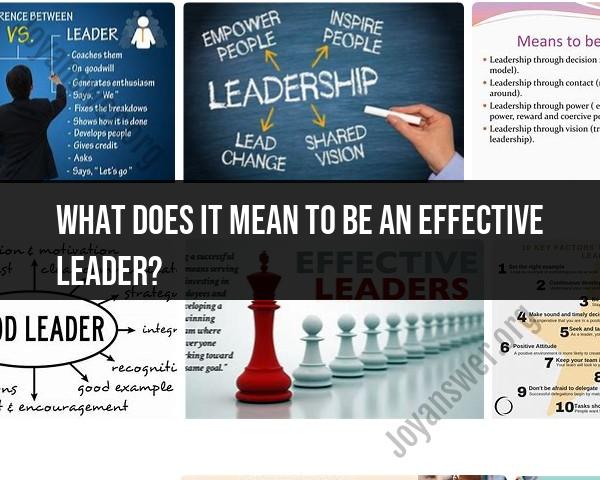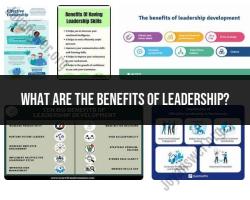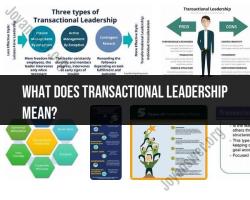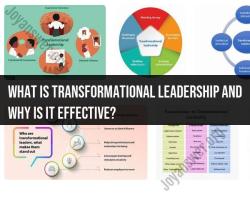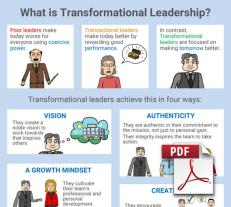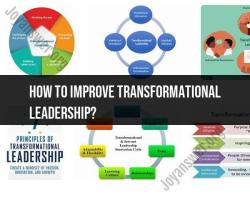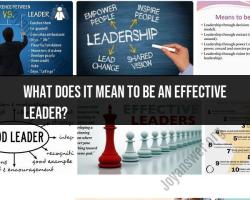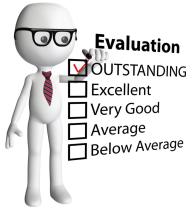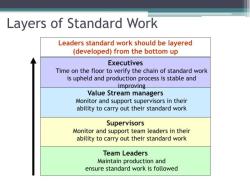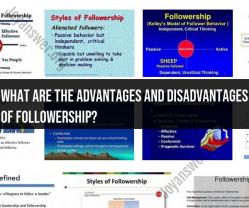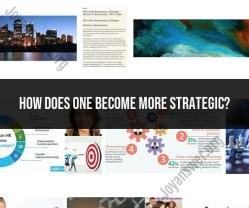What does it mean to be an effective leader?
Being an effective leader means having the qualities, characteristics, and skills necessary to guide, inspire, and influence others to achieve common goals and objectives. Effective leadership is not limited to a single leadership style but encompasses a range of attributes that can be adapted to different situations and contexts. Here are some key qualities and characteristics of an effective leader:
Vision: Effective leaders have a clear vision and purpose. They can articulate a compelling and inspiring vision of the future that motivates and guides their team.
Communication: Leaders are skilled communicators. They listen actively, convey their ideas clearly, and provide feedback. They understand the importance of both verbal and non-verbal communication.
Empathy: Empathetic leaders understand the needs, concerns, and perspectives of their team members. They show genuine care and concern for their well-being.
Integrity: Leaders with integrity are honest, ethical, and trustworthy. They lead by example and adhere to a strong set of moral and ethical principles.
Adaptability: Effective leaders are adaptable and open to change. They can adjust their strategies and approaches as circumstances evolve.
Confidence: Confidence in one's abilities and decisions is essential. Confidence inspires trust and respect from others.
Decisiveness: Leaders make timely and informed decisions. They are not afraid to take calculated risks and accept responsibility for the outcomes.
Resilience: Resilient leaders can bounce back from setbacks and persevere in the face of challenges. They maintain a positive attitude even in difficult situations.
Empowerment: Effective leaders empower their team members by delegating authority, providing opportunities for growth, and encouraging autonomy.
Problem-Solving: Leaders are skilled problem solvers. They can analyze complex situations, identify solutions, and implement effective strategies.
Team Building: Leaders build cohesive and high-performing teams. They promote collaboration, resolve conflicts, and foster a sense of unity and purpose.
Inspiration: Effective leaders inspire and motivate their team. They lead by example and create a positive and productive work environment.
Accountability: Leaders hold themselves and their team members accountable for their actions and outcomes. They take responsibility for both success and failure.
Self-awareness: Self-aware leaders understand their strengths and weaknesses and seek continuous self-improvement. They are open to feedback and self-reflection.
Courage: Courageous leaders are willing to challenge the status quo, speak up for what is right, and make difficult decisions.
Listening: Listening is a critical leadership skill. Effective leaders actively listen to their team's ideas, concerns, and feedback.
Servant Leadership: Some leaders adopt a servant leadership approach, where they prioritize the needs of their team members and work to support and enable them to achieve their best.
Strategic Thinking: Leaders think strategically and have a long-term perspective. They can plan and execute strategies that align with their vision.
Mentorship: Effective leaders often act as mentors, guiding and developing the next generation of leaders.
Cultural Competence: In diverse environments, leaders display cultural competence, showing an understanding and appreciation of different backgrounds and perspectives.
Being an effective leader is an ongoing process of development and learning. Effective leaders adapt to the needs of their team and the challenges of their organization while embodying these qualities and characteristics.
Exploring the Meaning of Being an Effective Leader
Effective leadership is the ability to influence and guide others towards a common goal. Effective leaders are able to create a positive and productive work environment, motivate their team members, and achieve results.
There are many different qualities that make a leader effective. Some of the most important qualities include:
- Vision: Effective leaders have a clear vision for the future and are able to communicate that vision to others.
- Communication: Effective leaders are able to communicate effectively with their team members. They are able to give clear instructions, provide feedback, and listen to concerns.
- Motivation: Effective leaders are able to motivate their team members to achieve their goals. They create a positive work environment and recognize and reward good work.
- Decision-making: Effective leaders are able to make sound decisions quickly and under pressure. They are able to weigh the pros and cons of different options and make the best decision for the team.
- Integrity: Effective leaders are honest and ethical. They lead by example and build trust with their team members.
Defining Effective Leadership and Its Components
Effective leadership is a complex concept that has been studied by researchers and practitioners for many years. There is no single definition of effective leadership, but it is generally understood to be the ability to influence and guide others towards a common goal.
Effective leadership has many components, including:
- Vision: Effective leaders have a clear vision for the future and are able to communicate that vision to others.
- Communication: Effective leaders are able to communicate effectively with their team members. They are able to give clear instructions, provide feedback, and listen to concerns.
- Motivation: Effective leaders are able to motivate their team members to achieve their goals. They create a positive work environment and recognize and reward good work.
- Decision-making: Effective leaders are able to make sound decisions quickly and under pressure. They are able to weigh the pros and cons of different options and make the best decision for the team.
- Integrity: Effective leaders are honest and ethical. They lead by example and build trust with their team members.
Measuring Leadership Effectiveness in Various Settings
There are a number of different ways to measure leadership effectiveness. Some common methods include:
- Performance reviews: Performance reviews can be used to assess the performance of individual team members and the team as a whole.
- 360-degree feedback: 360-degree feedback is a process of collecting feedback from a leader's superiors, peers, and subordinates.
- Self-assessment: Self-assessment is a process of leaders reflecting on their own performance and identifying areas for improvement.
- Leadership surveys: Leadership surveys can be used to collect data on the leadership skills and behaviors of individual leaders or teams.
The best way to measure leadership effectiveness will vary depending on the specific setting. For example, performance reviews may be the most appropriate measure of leadership effectiveness in a corporate setting, while 360-degree feedback may be more appropriate in a military setting.
Conclusion
Effective leadership is essential for the success of any organization. Effective leaders are able to influence and guide others towards a common goal. They create a positive and productive work environment, motivate their team members, and achieve results.
There are many different qualities that make a leader effective, including vision, communication, motivation, decision-making, and integrity. Effective leadership can be measured in a number of different ways, depending on the specific setting.
By understanding the meaning of effective leadership and its components, individuals can develop their own leadership skills and become more effective leaders in their organizations.
